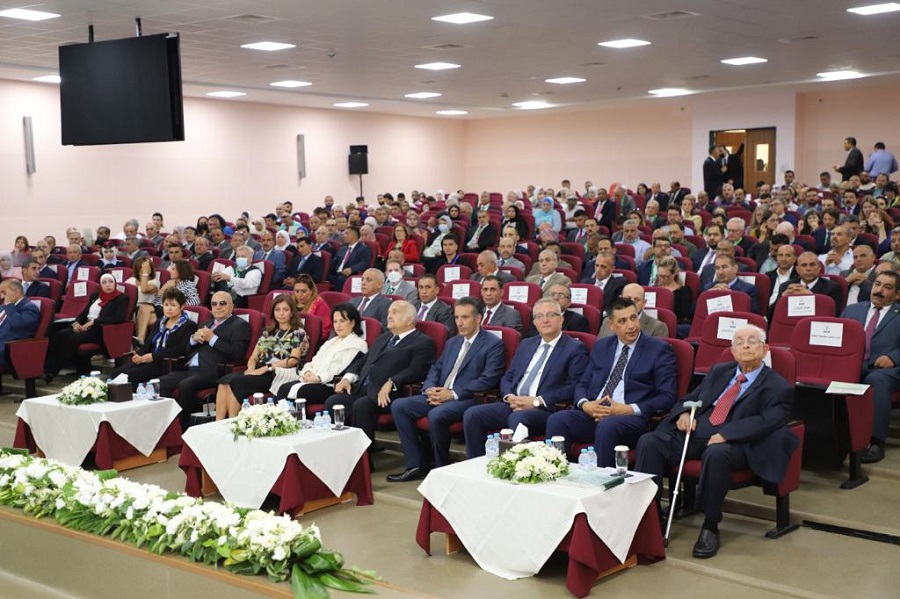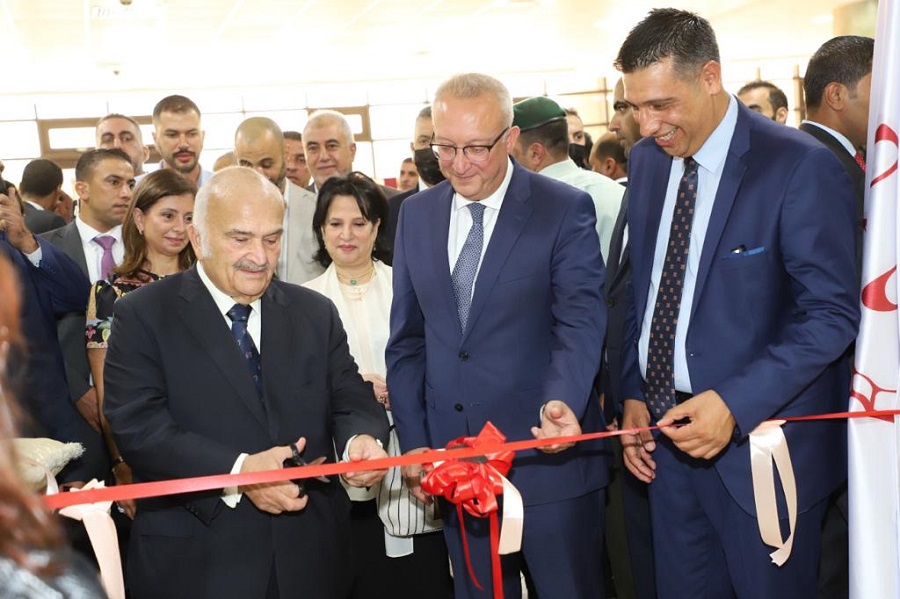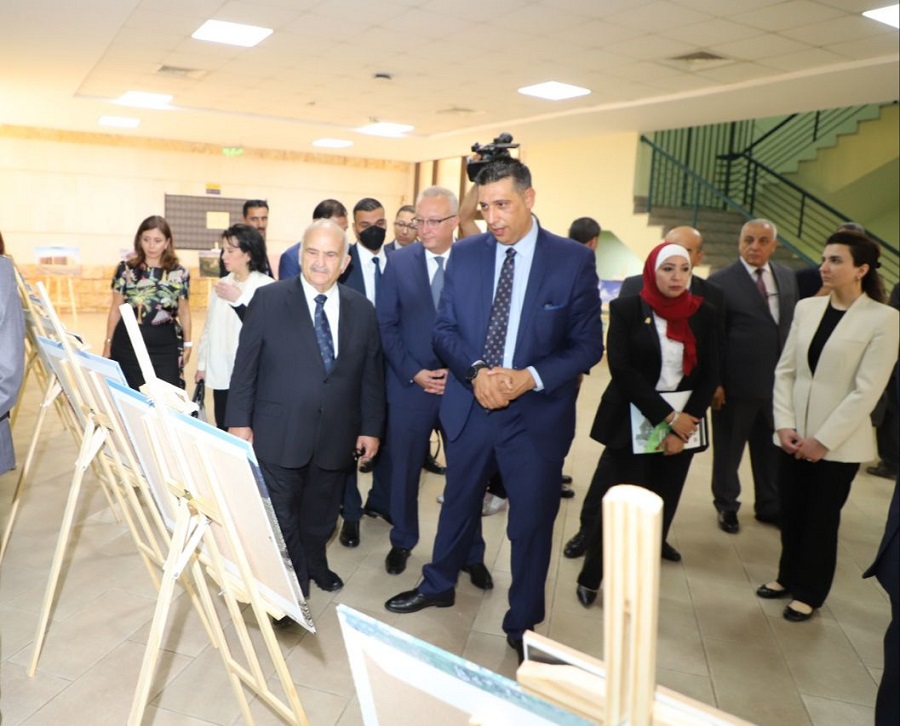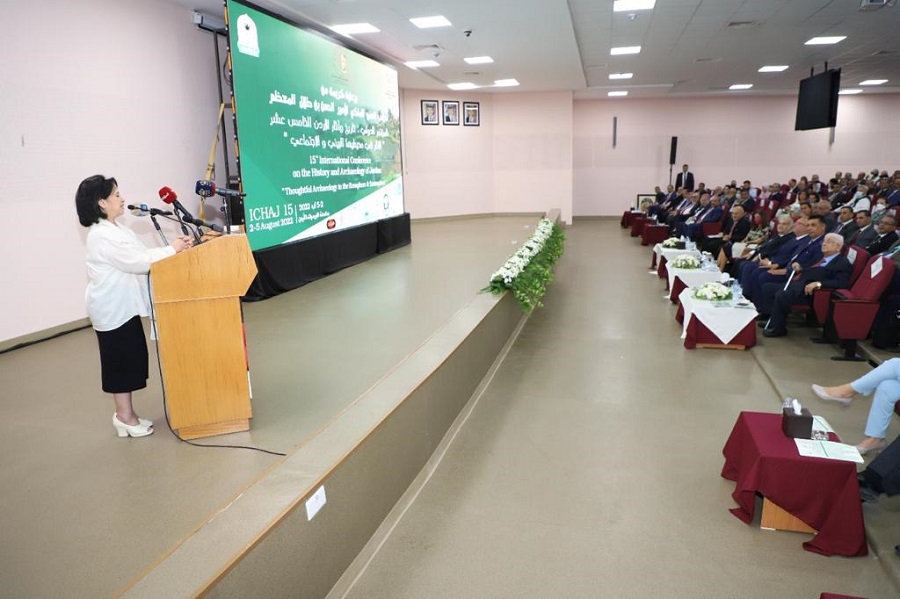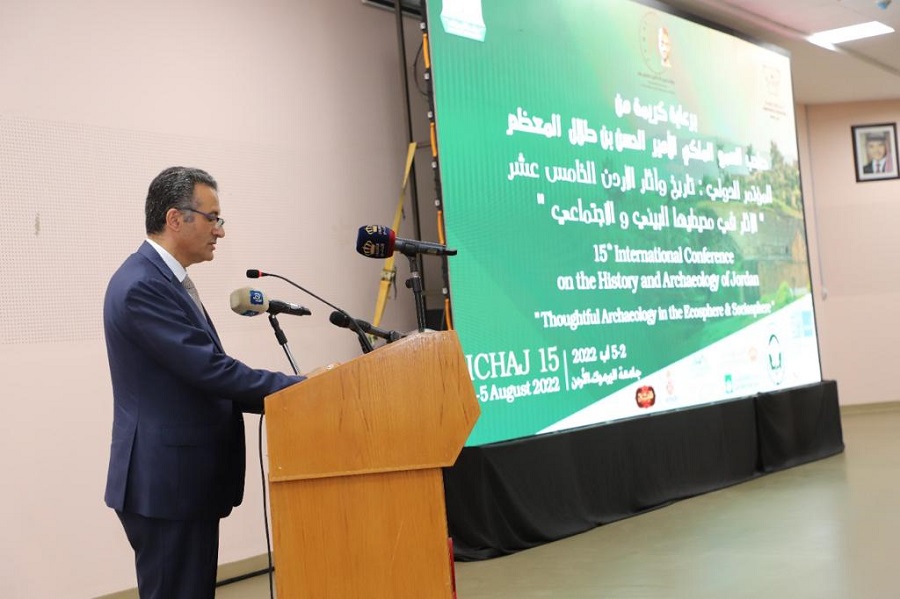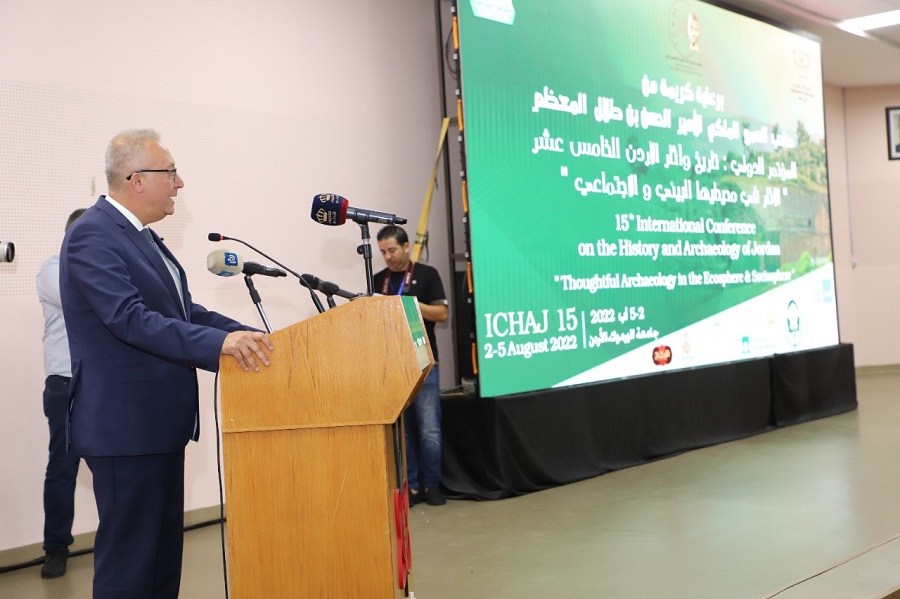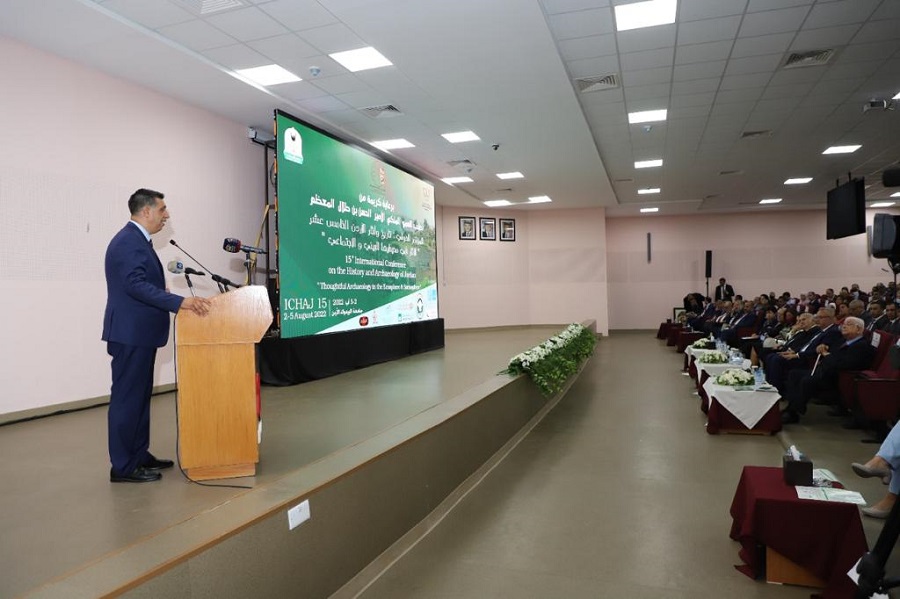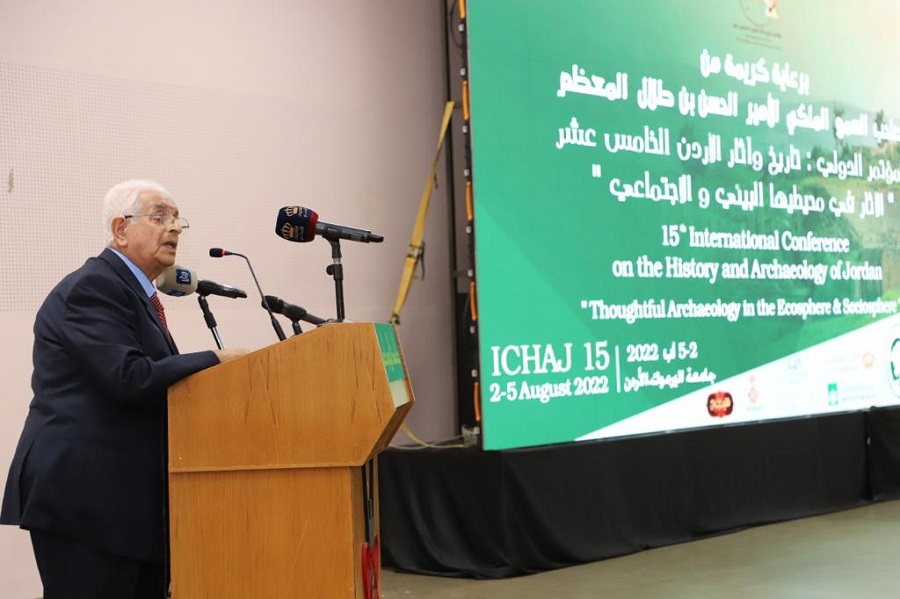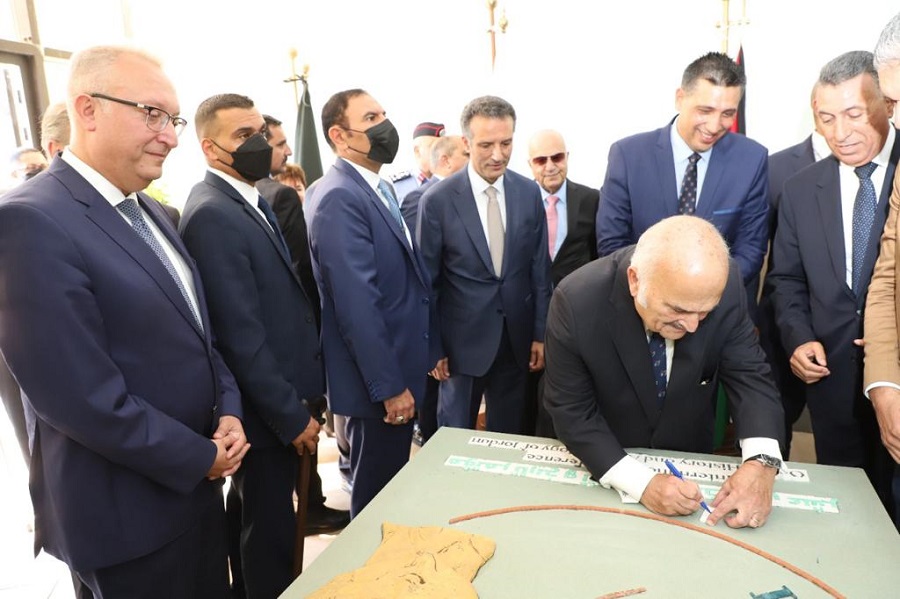
HRH Prince El-Hassan bin Talal patronized the opening of the activities of the 15th International Conference of the History and Archeology of Jordan, entitled “Thoughtful Archaeology in the Ecosphere and Sociosphere” organized by the Department of Antiquities in cooperation with Yarmouk University.
The opening ceremony was attended by HRH Princess Dana Firas, Sheikha Mai bint Mohammed Al Khalifa from the Kingdom of Bahrain, the Minister of Tourism and Antiquities Nayef Al-Fayez, the President of Yarmouk University Professor Islam Massad, the Director General of the Department of Antiquities Dr. Fadi Balawi, the presidents of official and private universities, deputies, former ministers and officials, faculty deans, faculty members, and students from Yarmouk University.
In his speech at the opening of the conference, His Highness said that such meetings confirm that cultures transcend borders to reach a common understanding regarding cultural heritage and its association with the future. His Highness also pointed out that heritage is an advanced resource that supports identity, memory, and our sense of place and time and that it has a central role in achieving sustainable development represented by intellectual communication and diversity. He further pointed to the possibility of investing in workshops for preserving archaeological and historical sites. HRH then signed a mosaic mural and inaugurated the exhibition entitled "Jordan- the Story of Civilization".
For her part, Sheikha Mai bint Mohammed Al Khalifa pointed out that Bahrain hosts a UNESCO regional center for the preservation of world human heritage sites, emphasizing that archaeological sites that are registered in the World Heritage List must be exceptional and meet certain criteria. She then stressed that tourism cannot be promoted without integrating it with antiquities in one system. She added that the center located in Bahrain launched a competition under the title "The Tale of Traces" that aims at reporting the story and memory of the place and record them in a film or brochure or any other means.
In his turn, the Minister of Tourism and Antiquities, Mr. Nayef Al-Fayez, said that this conference is an opportunity to benefit from the meeting of archaeologists, researchers, and specialists to discuss how to preserve Jordan heritage and maintain its sustainability for future generations. He also explained that choosing the symbol of the oldest statues that were discovered at the archaeological site of Ain al-Ghazal as a permanent logo for the conference confirms that our homeland is as old as history, which always motivates us to promote our historical and archaeological heritage globally.
For his part, the President of Yarmouk University, Professor Islam Massad, called on the conference participants to come up with recommendations that would make an effective contribution to the study of Jordan's cultural heritage. He also pointed out that the university has the lead among Jordanian academic institutions in studying and preserving Jordan's cultural heritage, as the Faculty of Archeology and Anthropology has the largest academic unit in Jordan working in the field of archeology, anthropology, ancient writings, and the maintenance and management of heritage resources.
The Director-General of the Department of Antiquities, Dr. Fadi Balawi, said that the conference aims at shedding light on archaeological sites and monuments in light of the changes within their ecosphere and sociosphere and trying to develop the vision of the Department of Antiquities in partnership with all institutes, scientific institutions, and international partners to confront environmental and social changes in the vicinity of archaeological sites.
The head of the Supreme Scientific Committee of the conference, Dr. Fayez Khasawneh, stated that the conference is to narrate the story of Jordan in its 15th update. He added: “in spite of the woes and tribulations of marching armies, the people of Jordan as well as the entire Levant or Bilad Alsham, managed to build abiding social structures” and that they developed several moral codes of ethics and values.
